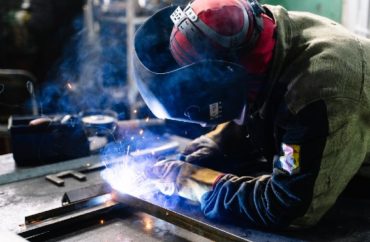MATT LAMB - ASSOCIATE EDITOR •JANUARY 13, 2022

Men are far more likely to enroll in community college trade programs that require hands-on learning
The entirety of the gender enrollment gap during COVID lockdowns can be attributed to the difficulty of offering many trade degree courses remotely or with social distancing, according to a new working paper.
Men are more likely to enroll in auto mechanic, welding or other trade programs that are difficult to teach while socially distanced or online, leading to higher costs and fewer course opportunities.
“Community colleges that had relative concentrations of credentials in [assembly, repair and maintenance] fields pre-pandemic experienced relatively large enrollment declines,” Northwestern Professor Diane Schanzenbach and University of Virginia Professor Sarah Turner said.
“The decline in ARM enrollment explains nearly all the difference in enrollment declines by gender during COVID,” the National Bureau of Economic Research paper said.
The professors said that some programs are easier to move online, such as web design and accounting. “On the other hand, courses that require significant capital and ‘hands-on; experiential learning, such as welding or automotive repair, are likely to be least elastic in supply and most difficult to transfer to an online environment.”
A review of enrollment data for community colleges in seven states showed that “enrollment of men was down more than 20 percent in 2020, while the enrollment of women declined by about half as much.”
MORE: Male enrollment drops at four-year colleges
The professors looked at programs in North Carolina for a case study. Classes such as “Engine Repair” and “Basic Transportation Electricity” have some math and theory components that can be taught online, but others are necessarily hands-on. “I can’t ‘teach’ online what things look, sound, feel, smell like,” one instructor said. “[S]hop sessions that are socially distanced are of lower value to tech students,” another instructor said.
The American economy will pay the price for this disruption in trade schools, if it has not already.
“Demand for skills in fields like HVAC repair, welding and auto repair is unlikely to have abated during the pandemic—and in the case of HVAC repair likely grew in response to improved ventilation recommendations—while the flow of new workers has been disrupted,” the researchers wrote.
Free college or “headcount-based appropriations” could also incentivize schools to promote low-cost programs versus capital intensive options, the researchers said.
“The result may be supply-side offerings that are poorly aligned with student demand and labor market needs,” the paper said. “The result may be persistent excess demand in high return fields where capital equipment and on-site training are necessary for skill acquisition.”
Colleges may begin to adapt simulation technologies as one way to address the issues of hands-on learning, the paper said.
MORE: Florida announces millions of dollars in trade school expansion
IMAGE: PavelChernonogov/Pexels.com
No comments:
Post a Comment